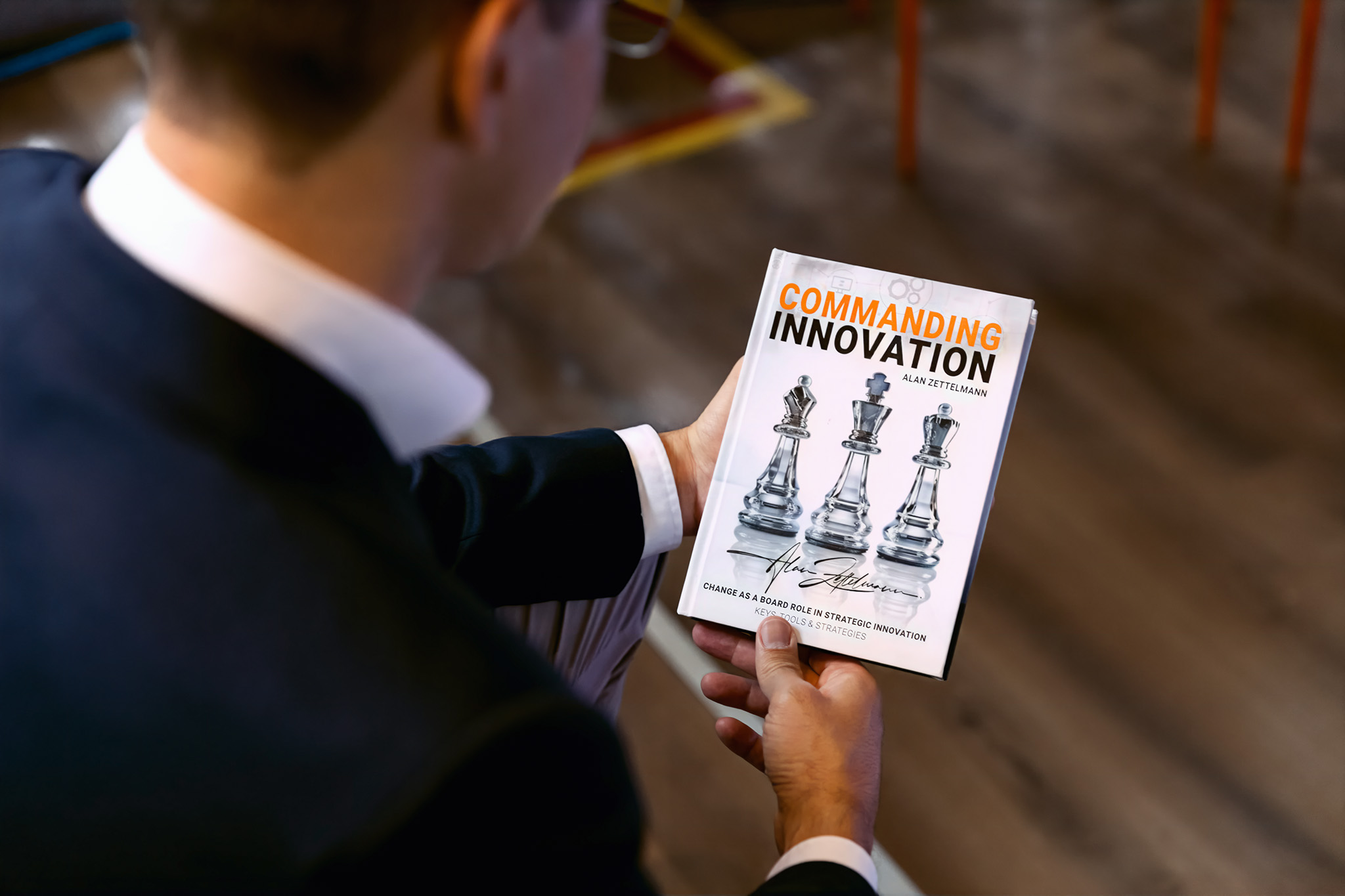By Alan Zettelmann — CEO of INNOCONSULT, global innovation strategist and author of Commanding Innovation.
In a world where change is the only constant, humanity is witnessing an unprecedented evolutionary leap. Japan’s vision of Society 5.0, introduced in 2016 and refined in 2021, proposes an audacious horizon: the complete convergence of cyberspace and the physical space to create a superintelligent, inclusive, and human-centered society. However, reaching this future is not automatic; it requires deliberate, ethical, and strategic innovation management.
As I express in my book Commanding Innovation, “Innovation is not an act of solitary genius, but a team sport where strategy, culture, and leadership play on the same field.” This premise is the starting point for understanding why Society 5.0 cannot be built without serious innovation governance.
What is Society 5.0 and Why Does It Matter Today?
Society 5.0 represents the fifth stage in humanity’s evolution: from hunter-gatherers to information societies, and from there to the threshold of superintelligence. Unlike Industry 4.0, focused on industrial digitalization, Society 5.0 integrates cyberspace with physical reality to tackle social challenges like population aging, climate change, and inequality.
Yet here comes the first warning: “Technology without ethics is a rudderless ship,” I point out in Commanding Innovation. Society 5.0 demands more than AI, IoT, or blockchain; it requires a renewed social contract where innovation becomes a tool for collective wellbeing.
Accelerated Convergence: The Engine of Transformation
At the heart of Society 5.0 lies accelerated convergence: the fusion of technologies, data, people, and processes at an unprecedented pace. It’s no coincidence that I highlight in my book a key concept: Innovation IQ, a metric to assess an organization’s real capacity to innovate sustainably.
“You can’t manage what you can’t measure. Without an Innovation IQ, companies and governments are sailing blind in a sea of disruptions.”
Convergence without strategy breeds chaos. That’s why I propose the Three Horizons Matrix:
- Horizon 1: Optimize the current state.
- Horizon 2: Explore new opportunities.
- Horizon 3: Create the disruptive future.
Japan applies this model in smart cities, autonomous mobility, and digital health. But the question is: how many countries and companies are prepared to scale this convergence ethically and sustainably?
Innovation Governance: The Role of Boards and Leadership
In Commanding Innovation, I dedicate an entire chapter to the role of boards and leadership in orchestrating innovation. Society 5.0 requires boards that measure the Return on Innovation (RoI) with the same rigor as financial ROI.
“The future of organizations is decided in the boardroom. If the board doesn’t understand innovation, it is mortgaging the future.”
We need governance that monitors indicators like:
- Technological Absorption Rate
- Level of Digital Inclusion
- Environmental Impact per Unit of Innovation
- Organizational Resilience Capacity
Ethics as a Pillar: Safeguarding the Superintelligent Society
Society 5.0 cannot exist without robust technological ethics. In the book, I emphasize that innovation must include a strong focus on cybersecurity and privacy by design. The hyperconnectivity promoted by 5.0 also opens doors to vulnerabilities that, if unchecked, could undermine public trust.
Technologies like blockchain, Edge AI, and 5G nodes—discussed in Commanding Innovation—are key infrastructures for a connected society but must also ensure transparency, traceability, and data sovereignty.
Tokenization and New Ways to Finance Innovation
One pillar I propose in Commanding Innovation is tokenization as a financing mechanism for innovation. In Society 5.0, transparent supply chains and social impact projects can be funded through crypto-assets with distributed governance.
“Innovation must also reinvent its financing mechanisms. The future will be funded in tokens as much as in shares.”
Measuring Progress Toward Society 5.0: Proposed Indicators
We cannot improve what we don’t measure. That’s why I propose these KPIs to assess progress toward Society 5.0:
- National and Organizational Innovation IQ
- Return on Innovation (RoI): economic and social impact of innovations
- Net Positive Environmental Impact: ecological footprint of each innovation
- Digital Inclusion: percentage of the population with access to digital services
- Organizational Resilience: capacity to adapt to disruptions
A Global Call: Let’s Build Society 5.0 with Intelligence and Ethics
Society 5.0 is not an inevitable destination; it is a collective design. In the words of my book:
“The future is not something that simply happens. It is something we choose to build with every decision, every collaboration, every innovation.”
Governments, companies, universities, and citizens have the duty to co-create this future, ensuring that accelerated convergence does not turn us into slaves of technology but into architects of a more human, sustainable, and resilient society.
The time to act is now. Society 5.0 is waiting for us, but only if we build it with intelligence, purpose, and ethics.
What’s Next?
If this topic has captured your interest and you want to dive deeper into the frameworks and tools to lead this transformation, I invite you to read my book Commanding Innovation. It offers the strategic keys to turn vision into action.
And if you’d like to experience these ideas live and explore how to lead in this superintelligent era, If you at RIW ( RIO INNOVATION WEEK BRAZIL) join me “today” August 12th at 5:00 PM “Armazen 3” at the Rio Innovation Week. Bring your questions, your vision, and your ambition to leave a mark. We are having a Book signing session as well!
The future is now. Let’s make it worth it.
Learn more about the next key note by visiting my website : alanzettelmann.com




